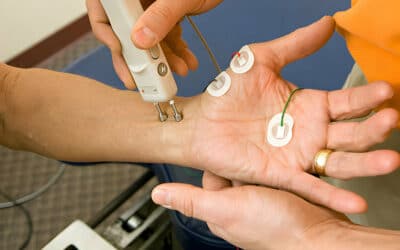Neuropathy, also known as peripheral neuropathy, is a condition that affects more than 20 million of American citizens. While not widely discussed, it is admittedly quite widespread. The symptoms are varied and so are the treatments, as they differ depending on the underlying cause. If you are feeling muscle weakness, twitching, numbness, a tingling sensation, burning or lightheadedness, you should see a medical provider straight away. This article will help you understand the treatments available so you can discuss the best course of action with your neuropathy doctor in Webster, Texas. A solution is possible.
Related articles:
Underlying Causes of Neuropathy
Neuropathy means “nerve disease,” a combination of the Greek “pathos,” i.e., “suffering, disease”, and “neuro,” meaning “nerve”. Nerves are basically long fibers that transmit information across our bodies. They make up the Peripheral Nervous System (ergo, the term also being “peripheral neuropathy”), while the brain and the spinal cord make up the Central Nervous System (CNS).
When the brain and the spinal cord suffer, this almost inevitably impacts the nervous system, therefore developing a neuropathy. Some affections are more notorious and therefore obvious than others. Here is a comprehensive list:
Clearly Traceable Origins
- Trauma (physical injury). Accidents or falls will impact the nerves directly and may lead to neuropathy. This happens when as a result of the injury, the nerves are stretched, compressed or detached altogether from the spinal cord.
- Diabetes. This is the leading cause of neuropathy in the United States. Diabetic neuropathy commonly affects the legs and the feet and symptom severity varies from one person to another.
- Chronic alcoholism. Alcohol consumption has an impact on the brain’s structure and function. For example, our feeling relaxed after one drink is a sign of this. Chronic consumption of alcohol will progressively deteriorate the CNS.
Silent Origins
- Nutritional deficiencies
- Tumors
- Medications
- Exposure to toxins
- Hypothyroidism
- Inflammatory conditions
At Space City Pain, you can find a specialized neuropathy doctor in Webster, Texas.
Neuropathy Symptoms and Treatments
Neuropathy symptoms can include: altered sensitivity, burning sensation and sharp stings, numbness, spasm or cramps, and erection problems and vaginal dryness.
In most cases, these symptoms will be presented together with the clinical presentation of origin, which your neuropathy doctor in Webster, Tx, should be informed of.
Treatments
Treatments will vary depending on the underlying cause, as we have established. Here are the most common treatments for neuropathy.
- Pain medication. The symptoms described above might lead one to think that common painkillers will make them better, however, it is not the case. A doctor should prescribe specific medication, the dose of which should also be under monitored by the doctor. Some of the medicines that professionals recommend include: amitriptyline, duloxetine, pregabalin and gabapentin.
- Transcutaneous electrical nerve stimulation (TENS). TENS involves sending a gentle electrical current to the body through electrodes attached to the affected area.
- Physical therapy. Strengthening exercises can improve muscle reaction for neuropathy patients. In turn, they also reduce pain.
Neuropathy Doctor in Webster, Texas: The Ultimate Treatment
For people struggling with neuropathy, a return to everyday activities and a pain-free lifestyle awaits at Space City Pain. Our board-certified specialists specialize in treating painful conditions and designing personalized programs that provide comprehensive care. We have been pioneers in pain management in the Webster community since 2004 and continue to be at the forefront of care. What’s more, we also serve League City, Texas City, Clear Lake, Friendswood, and surrounding areas.



